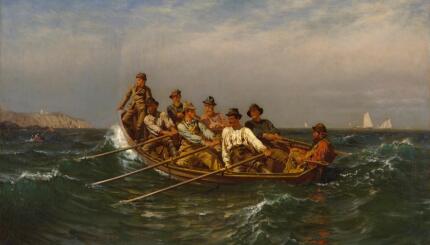Why is it customary for a mourner to lead the prayer service? In his book Kaddish, Leon Wieseltier quotes Solomon Luria’s opinion that a mourner should lead because “the King of Kings prefers broken vessels.” This lovely formulation is based on a striking passage from the Midrash:
Rabbi Alexandri said: “If a person uses broken vessels, it is considered an embarrassment. But God seeks out broken vessels for His use, as it says, ‘God is the healer of shattered hearts.‘”
Leviticus Rabbah 7:2
That we are more whole when broken is the paradox embodied in the Kotzker’s famous phrase that the only whole heart is a broken one. A well lived life is one in which we grow from pain, for the ills of existence are inseparable from its lessons. To live unscathed is to forfeit life’s richness for a counterfeit safety.
“Life breaks all of us,” Hemingway famously said, “and most of us are strong in the broken places.” The midrash’s wisdom is gentler, and deeper. Sometimes it is from weakness that we reach toward God, and while we may end up stronger, we surely grow wiser and closer to the center of our own souls.
Rabbi David Wolpe’s musings are shared in My Jewish Learning’s Shabbat newsletter, Recharge, a weekly collection of readings to refresh your soul. Sign up to receive the newsletter.
With your help, My Jewish Learning can provide endless opportunities for learning, connection and discovery.



